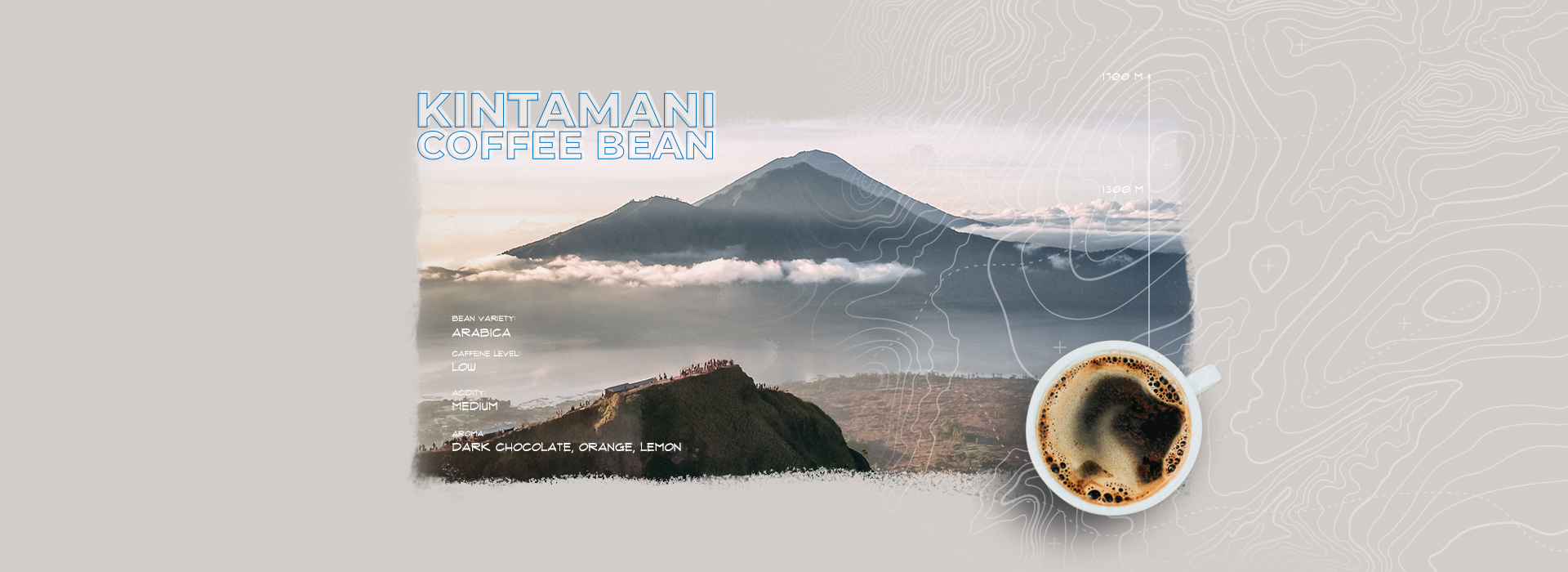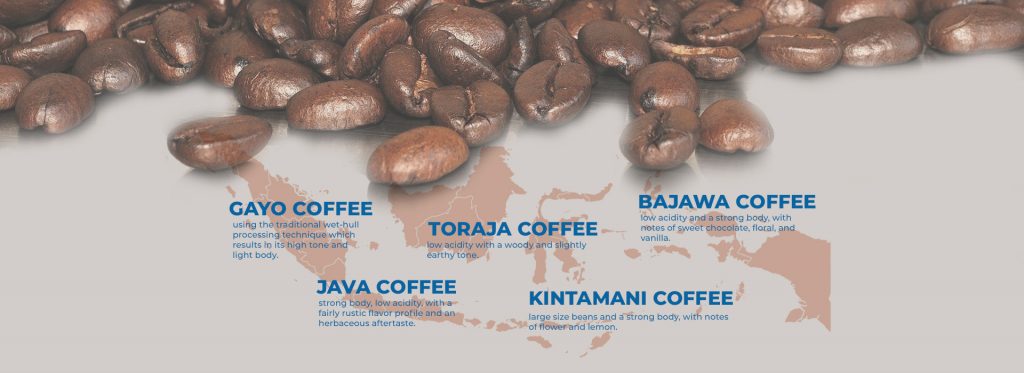Dig Deep Into Indonesian Coffee: Kintamani Coffee Beans
In our previous blog, we discussed in general about the five most popular coffee beans from Indonesia. In this post, we will go to greater depth at Kintamani coffee beans, one of the most prominent Bali coffee varieties in the country, from the highlands of Kintamani on Bali Island. Bali is one of the most popular holiday destinations in the world, most people come for the beaches, the rice fields, the culture and the food. But Bali also has a hidden gem that is its coffee industry. We will talk about the geographic and climate background in the Kintamani area, the coffee bean characteristics and what the future holds for this enigmatic Indonesian coffee bean variety.
Where Kintamani Coffee Beans Come From
The Kintamani highlands in northern Bali is located on top of a large volcanic plateau between 1,300-1,700 meters above sea level. Coffee crops are grown under a cool and dry climate, in the rich volcanic soil of Mount Agung along with citrus trees which is another main source of income for the farmers in the area.
The coffee cultivation is more than just planting and harvesting, since the coffee farmers follow the unique Subak Abian practice, which is a traditional collective farming system in Bali similar to a cooperative. This system has been in place since the 9th century, encompassing both agriculture activities as well as religious practices. It strongly adheres to the Balinese way of life, Tri Hita Karana, which based its roots on Hinduism. Tri Hita Karana means “the three causes of well-being” and it focuses on the harmonious relationships between man and God, man and fellow man, as well as man and the environment. By way of this principle, the Kintamani coffee farmers refrain from using pesticides, insecticides, and other harmful chemicals to produce environmentally friendly coffee in a natural, organic way. Under the Subak Abian system, coffee farmers share their knowledge and resources and strive to align with the natural cycles of coffee production.
Characteristics of Kintamani Coffee Beans
The Kintamani coffee beans are 100% Arabica coffee, single-origin specialty coffee with an incredibly smooth body, lighter taste and sweet flavor. The uniqueness of this coffee – citrusy aroma, full-bodied, and fruity flavorful taste – is really elevated due to the farmers in Kintamani taking their time to hand-pick the coffee cherries one by one from their coffee trees, many of which are decades-old. The distinctive tartness of Kintamani coffee beans can be attributed to the fact that most of the plantations grow their coffee together with citrus fruits, and this results in a fruity beverage with a sweet, almost syrupy aftertaste.
Other general characteristics are:
- Bean variety: Arabica
- Caffeine level: low
- Aroma: dark chocolate, orange, lemon
- Acidity: Medium
- Body: High
- Flavors: sweet, syrupy, bitter chocolate
The Future of Kintamani Coffee Beans
Due to its Subak Abian system which is possibly one of the most unique methods of coffee cultivation, Kintamani area has earned the reputation as the sought-after organic coffee origins. This unique coffee variety was given IG certification which qualified them for export in 2008. Kintamani coffee beans have been in high demand and exported overseas to Japan, Europe, America, Australia and Korea.
At the local market level, the usually tranquil Kintamani area is now buzzing with excitement. Amidst the pandemic, there are a number of new coffee shops being opened and getting more and more popular. They are all offering the same thing: local Kintamani brew with a stunning view of Mount Batur. This clever combination of coffee and nature seems to be working well to attract local customers and domestic tourists. Combined with agrotourism where visitors can see how the coffee beans are processed and do cupping sessions on site, coffee seems to be the main attraction that brings more and more people to Kintamani.
So, what are you waiting for? Get your Kintamani brew today!


